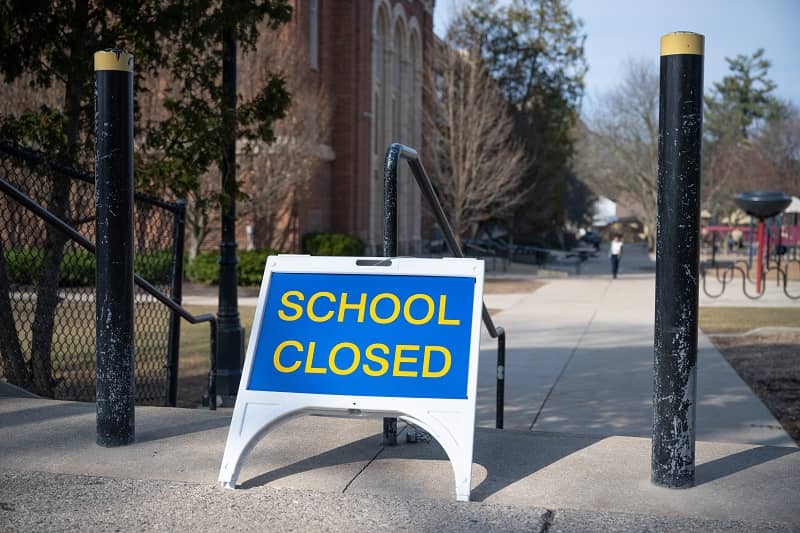– Survey Results Find Strong Support for School Choice Among Democrats, Independents, Republicans –
FOR IMMEDIATE RELEASE
Contact: Steve Buckstein
Cascade Policy Institute
Tel.: 503-242-0900
Fax: 503-242-3822
E-mail: steven@cascadepolicy.org
Contact: Joe DiLaura, Director of Communications
Friedman Foundation for Educational Choice
Tel.: 317/229-2128 or 317/645-8614
E-mail: joe@friedmanfoundation.org
Nearly nine out of ten Oregon residents would send their children to private, charter, or virtual schools, or educate their children in a home school setting if they had the decision-making authority, according to the results of a public opinion survey released today by the Friedman Foundation for Educational Choice, the Cascade Public Policy Institute, and several other state and national organizations. Eighty-seven percent of residents polled would opt for schools other than regular public schools, according to the survey.
“As we have found in several other states, parents in Oregon clearly want to have more options in the education of their children,” said Robert Enlow, executive director of the Indianapolis-based Friedman Foundation, which undertook the study on behalf of the sponsoring organizations. “In short, they want school choice.”
“Cascade Policy Institute was founded in part on Milton Friedman’s idea that all families should be able to choose where their children go to school,” said Cascade founder Steve Buckstein. “Now we have even more evidence that most Oregonians agree.”
When asked “if it were your decision and you could select any type of school, what type of school would you select in order to obtain the best education for your child,” here’s how Oregonians responded:
- 44 percent selected private schools
- 24 percent selected charter schools
- 14 percent selected home schooling
- 13 percent selected regular public schools
- 5 percent selected virtual schools
The survey demonstrates a wide disconnect between schooling preferences and actual school enrollments. While forty-four percent of Oregon parents said they would like to send their child to a private school, only 7 percent of Oregon’s students attend private schools. Twenty-four percent of Oregon parents said they would like to send their child to a charter school, yet charter schools enroll only about 2 percent of the state’s students. While only thirteen percent of Oregon parents said they would choose a regular public school for their child, more than nine out of ten — 91 percent — attend regular public schools. The implication of these results is that Oregon, like many other states, does not have sufficient school choice systems in place to match parents’ schooling preferences.
Other results of the survey:
- School choice is not a partisan issue among Oregon residents. The survey results indicate general agreement among Democrats, Republicans, and Independents. There is potential in Oregon to put aside party differences and work together on systemic reforms, as there are shared common views on school choice policies. High levels of support exist for school vouchers, tax-credit scholarships, charter schools, and personal-use tax credits and deductions for education expenses.
- Fifty-eight percent of the survey respondents rated Oregon public schools as poor or fair, while 31 percent rated the schools as good or excellent. More than one in three (36%) said that lack of accountability was the biggest challenge confronting the public schools, followed by poor student discipline and self-control (19%).
- Fifty six percent say Oregon’s level of public school funding is “about right” or “too high,” though when asked how much they thought was spent on each student, more than two of three (67%) underestimated the per pupil expenditure. In 2006, the per-pupil student funding in Oregon was $9,666; sixty-seven percent believed that amount to be $8,000 or less.
- Oregonians show potentially high demand for new school models such as charter schools, virtual schools and vouchers. Survey results show 70 percent of voters are favorable to charter schools, 51 percent are favorable to virtual schools, and 63 percent are favorable to vouchers. Twenty-four percent strongly favor charter schools, 13 percent strongly favor virtual schools, and 19 percent strongly favor vouchers. These findings remain consistently high across family income groups.
The scientifically representative poll of 1,200 likely Oregon voters was conducted in September by Strategic Vision, an Atlanta-based public affairs agency whose polls have been used by Newsweek, Time Magazine, BBC, ABC News, and USA Today, among others. It has a margin of error of plus or minus 3 percentage points.
The Oregon findings are the latest in a series of surveys commissioned under the Friedman Foundation’s Survey in the State project. Previous surveys include Montana, released in October, Maryland, in August, 2008; Oklahoma, released in June 2008; Idaho and Tennessee, both in March of 2008; Nevada, January, 2008; Illinois, December 2007; Georgia, April 2007; Florida, January 2006; and Arizona, January 2005.
Other sponsors of the survey include Children’s Scholarship Fund-Portland, Northwest Professional Educators, Oregon Education Tax Credit Coalition, American Legislative Exchange Council, Black Alliance for Educational Options, and Hispanic Council for Reform and Educational Options.
The Indianapolis-based Friedman Foundation is a non-profit organization established in 1996. The origins of the foundation lie in Milton and Rose Friedman’s long-standing concern about the serious deficiencies in America’s elementary and secondary public schools. The best way to improve the quality of education, they believe, is to enable all parents to have a truly free choice of the schools that their children attend. The Friedman Foundation works to build upon this vision clarify its meaning to the general public and amplify the national call for true education reform through school choice.
The Cascade Policy Institute, founded in 1991, is a nonprofit, nonpartisan public policy research and educational organization that focuses on state and local issues in Oregon. Cascade’s mission is to develop and promote public policy alternatives that foster individual liberty, personal responsibility and economic opportunity.
The full Oregon survey results can be found at www.friedmanfoundation.org and at www.cascadepolicy.org.











